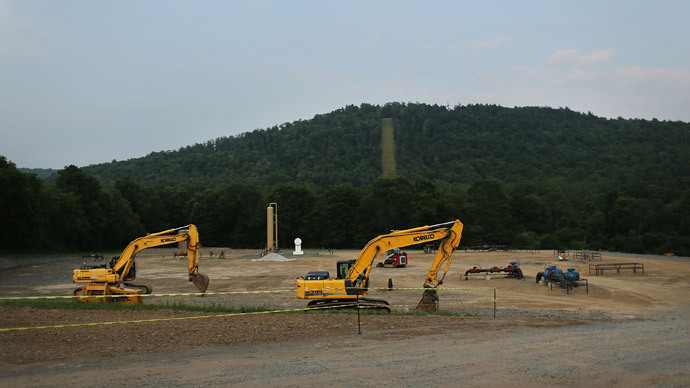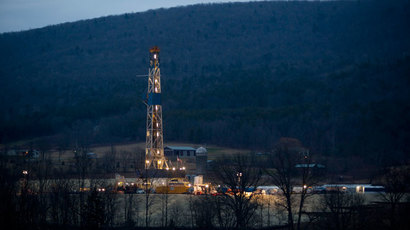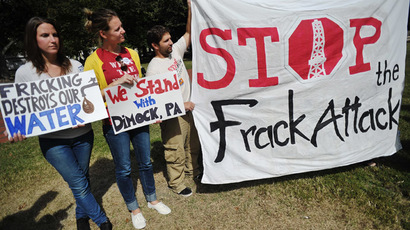Oklahoma earthquake spike likely linked to fracking boom

Central Oklahoma has seen a massive increase in earthquakes in recent years, leading geological scientists to link the uptick in quakes to oil and gas development in the way of hydraulic fracking.
From 1975 to 2008, the US Geological Survey found that central Oklahoma experienced one to three 3.0-magntitude earthquakes per year, The Nation reported. That number jumped to an average of 40 a year from 2009 to 2013.
The state has received 25 such quakes this year, and 150 total quakes just this week. Overall, the entire state of Oklahoma has experienced 500 earthquakes of any magnitude since Jan. 1.
Scientific data suggests the current fracking boom is a major part of the spike. Fracking is the highly controversial process of injecting water, sand, and various chemicals into layers of rock, in hopes of releasing oil and gas deep underground.
Fracking has long been associated with seismic activity, as researchers have shown connections between quakes and wastewater injection wells. The toxic wastewater is stored deep underground, causing friction along fault lines, scientists have found. For instance, researchers last year linked drill sites to a series of quakes in parts of Ohio.
The injection wells used for oil and gas development are the “most reasonable hypothesis” to explain the earthquake uptick in Oklahoma, Nicholas van der Elst, a post-doctorate research fellow at Columbia University’s Lamont-Doherty Earth Observatory, told The Nation.
“The burden of proof is on well operators to prove that the earthquakes are not caused by their wells,” van der Elst said.
One 2011 study, published in the journal Geology, linked liquid infusion with earthquakes in the state, including the largest ever recorded in Oklahoma. The state has over 4,400 disposal wells, StateImpact reported.
The Nation found that the seismic action associated with fracking wells are getting notice in state legislatures. Arkansas has banned wells in one 1,550-square mile area based on quakes there. Ohio has banned wells near fault lines, and a task force was assigned by the state of Kansas to assess links between quakes and fracking.
Vermont has banned fracking, despite negligible prospects for oil or gas production, and Massachusetts is seriously considering a ban.
Five Colorado cities have prohibited fracking, though they face legal challenges from the state – not the industry. And the city of Dallas passed late last year restrictions that prohibit fracking within 1,500 feet of a home, school, church, and other protected areas, effectively banning the practice within the city.
One town in rural Texas has taken to demanding that regulators act immediately to ban fracking in their area, as they allege that it is to blame for a spate of recent earthquakes.
Meanwhile, a recent report found that some of the most drought-ravaged areas of the US are also heavily targeted for oil and gas development using fracking, a practice which exacerbates water usage.
Half of the 97 billion gallons of water used since 2011 for fracking have gone to wells in Texas, a state in the midst of a severe, years-long drought. Meanwhile, oil and gas production through fracking is on track to double in the state over the next five years, the Guardian reported.
In California, 96 percent of new wells are located in areas where competition for water is high. A drought emergency for the entire state – which has traditionally dealt with water-sharing and access problems – was declared last month.













